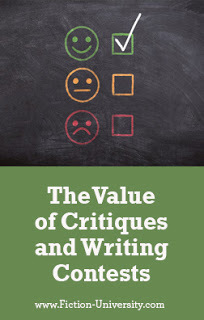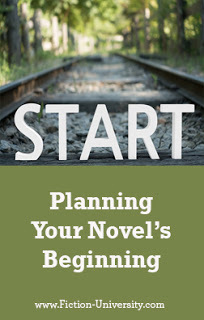Janice Hardy's Blog, page 93
October 15, 2018
What You Need to Know About Internalization
 By Janice Hardy, @Janice_Hardy
By Janice Hardy, @Janice_HardyBefore I dive in, a quick heads up that I’m over at Writers in the Storm today, chatting about a handy tip to help you get unstuck while plotting. And in case you missed them, I was recently at Romance University talking about plotting when you haven’t worked out all the details yet, and on Jami Gold’s blog with some tips on brainstorming to find your novel’s plot. It’s been a busy month.
On to today’s topic…
I’ve always felt that internalization is one of the go-to tools in a writer’s toolbox. It’s a powerful and effective way to establish voice, show personality, craft subtext, and keep the narrative flowing smoothly from scene to scene. Pair this with a strong point of view and a good conflict and you usually wind up with story gold.
Let’s look a little closer at why strong internalization skills are so important:
Continue ReadingWritten by Janice Hardy. Fiction-University.com

Published on October 15, 2018 05:11
October 14, 2018
Writing Prompt: The Chain Story: Something New to Something Old
 By Janice Hardy, @Janice_Hardy
By Janice Hardy, @Janice_HardyThis week’s prompt is a chain story! I’ll give you the first line, and someone else comments and builds off that line. Next commenter will build off that line, and so on.
In the event of two commenters posting at the same time and sending the story in different directions, just pick the line you like best, or try to incorporate both if you can.
A fresh coat of paint can do wonders.
Let the fun begin.
Written by Janice Hardy. Fiction-University.com

Published on October 14, 2018 05:09
October 13, 2018
Real Life Diagnostics: Does This Work as an Opening? Or Is it Boring?
 Critique By Maria D'Marco
Critique By Maria D'Marco Real Life Diagnostics is a weekly column that studies a snippet of a work in progress for specific issues. Readers are encouraged to send in work with questions, and we diagnose it on the site. It’s part critique, part example, and designed to help the submitter as well as anyone else having a similar problem.
If you're interested in submitting to Real Life Diagnostics, please check out these guidelines.
Submissions currently in the queue: One
Please Note: As of today, RLD slots are booked through October 20.
This week’s questions:
Does this work as an opening? Or is it boring?
Market/Genre: YA Romance
On to the diagnosis…
Continue ReadingWritten by Janice Hardy. Fiction-University.com

Published on October 13, 2018 05:30
October 12, 2018
The Grammar Chicken: Helping Writers Write
 By Alythia Brown, @alyconnerbrown
By Alythia Brown, @alyconnerbrownPart of the How They Do It Series
JH: Something fun and informative today, as Alythia Brown returns to the lecture hall with her Grammar Chicken. Yes, that's right. A chicken that helps writers keep track of commonly misused words. Believe it or not, those are two of my favorite things (Well, chickens, and helping writers).
Alythia Brown is represented by BookEnds LLC and works by day as a journalist and copy editor. You can find more of The Grammar Chicken.
Website | Twitter | Google+ | Goodreads |
Take it away Alythia...
Continue ReadingWritten by Janice Hardy. Fiction-University.com

Published on October 12, 2018 05:06
October 11, 2018
The Value of Critiques and Writing Contests
 By George A Bernstein, @GeorgeBernstein
By George A Bernstein, @GeorgeBernsteinPart of The Writer's Life Series
I saw a recent blog post by a writer unhappy about the critique she received from someone she was using, who “didn’t get” what she was trying to do.
One of the problems we writers can have IS getting our readers to “get it.” And if they don’t, whose fault is that? Yours, clearly.
It seems pretty obvious it’s the author’s responsibility to see that readers understand what he or she is trying to do or say. If your critic doesn’t get it, surely your audience won’t either. Many authors have a problem with criticism. “How dare you challenge my work, that I slaved over and love.” That’s a prescription to failure.
Continue ReadingWritten by Janice Hardy. Fiction-University.com

Published on October 11, 2018 05:28
October 10, 2018
Top Five Fast-Drafting Tips for Writers
 By Ava Jae, @Ava_Jae
By Ava Jae, @Ava_JaePart of the How They Do It Series
JH: I woke up feeling under the weather today, so I'm dipping into the archives for pearls of wisdom. Here's one from 2015 that's just as useful now as it was then, with tips on fast drafting and how we can get a first draft finished in no time at all. Enjoy!
Please help me welcome Ava Jae back to the lecture hall today. November is fast approaching, and for some, that means NaNo! So if you want to get a jump start on this years race to 50K words, Ava has some great tips on fast drafting to share. And for those who aren't interested in NaNo, but would like to write a first draft a little faster, these tips cams work for you, too.
Ava is a YA and NA writer, an Assistant Editor at Entangled Publishing, and is represented by Louise Fury of The Bent Agency. Her YA Sci-Fi series begins with BEYOND THE RED, from Sky Pony Press. When she’s not writing about kissing, superpowers, explosions, and aliens, you can find her with her nose buried in a book, nerding out over the latest X-Men news, or hanging out on her social media sites.
Blog | Twitter | Facebook | tumblr | Goodreads | Instagram | YouTube channel
Take it away Ava...
Continue ReadingWritten by Janice Hardy. Fiction-University.com

Published on October 10, 2018 05:08
October 9, 2018
Outline Your Novel the Incredibly Easy Way
 By Laurence MacNaughton, @LMacNaughton
By Laurence MacNaughton, @LMacNaughton Part of the How They Do It Series (Contributing Author)
I've never met any writer who really loves to outline. But a good outline can help you write a better book and finish it faster. Over the years, I’ve developed my own outlining method that is super simple, quick, and (dare I say) fun.
Plus, it's easy. You don't have to read a thick book full of instructions. You don't need spreadsheets or special software. You don't even need to have that much of your novel figured out yet.
All you need is a few ideas, a pencil, and a pack of index cards. (Or yellow sticky notes, if you prefer.)
Ready? Let's do this.
Continue ReadingWritten by Janice Hardy. Fiction-University.com

Published on October 09, 2018 04:58
October 8, 2018
NaNoWriMo Prep: Planning Your Novel’s Beginning
 By Janice Hardy, @Janice_Hardy
By Janice Hardy, @Janice_HardyIt's NaNo prep time again, and I always like to pull out these tips on plotting your novel's beginning, middle, and ending to help those going for 50K words come November (or if you're just about to start a new novel on your own).
For many, the beginning of a novel is the hardest part. Getting the right opening scene, finding the right inciting event, even figuring out the perfect first sentence can keep you from getting anywhere at all. But don't worry. Beginnings aren't are scary and they appear.
In many ways, they're the easier part, since you probably already know the most critical aspects of your story--the protagonist, the goals, the conflict, the setting. If you're not yet sure on what to put in your novel's beginning, let's take a closer peek at what goes into a beginning.
Continue ReadingWritten by Janice Hardy. Fiction-University.com

Published on October 08, 2018 03:00
October 7, 2018
Writing Prompt: The Story Starter: Bad News Before a Good Time
 By Janice Hardy, @Janice_Hardy
By Janice Hardy, @Janice_HardyThis week’s prompt is a story starter, so take the element provided and turn it into a story of any length you choose. If you’re stuck on size, I suggest aiming for 1000-2000 words.
The protagonist is getting ready for a happy occasion, when bad—and hard to believe—news arrives.
Write a tale from whatever this triggers, be it a summer wedding or a ritual to summon a Dark Lord (from the evil wizard’s perspective, of course) or anythng in between. Have fun with it and see what develops.Written by Janice Hardy. Fiction-University.com

Published on October 07, 2018 05:14
October 6, 2018
Real Life Diagnostics: Is This Query Working?
 Critique By Janice Hardy, @Janice_Hardy
Critique By Janice Hardy, @Janice_HardyReal Life Diagnostics is a weekly column that studies a snippet of a work in progress for specific issues. Readers are encouraged to send in work with questions, and we diagnose it on the site. It’s part critique, part example, and designed to help the submitter as well as anyone else having a similar problem.
If you're interested in submitting to Real Life Diagnostics, please check out these guidelines.
Submissions currently in the queue: Two
Please Note: As of today, RLD slots are booked through October 20.
This week’s question:
Is this query working?
Market/Genre: Query Letter
On to the diagnosis…
Continue ReadingWritten by Janice Hardy. Fiction-University.com

Published on October 06, 2018 03:00



